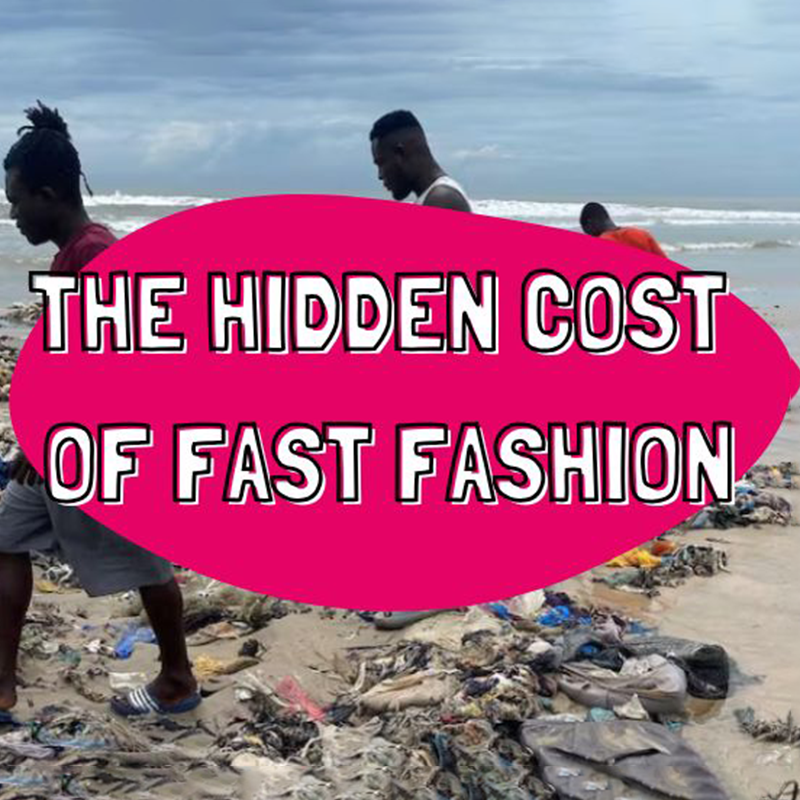The global appetite for fast fashion has brought with it a whirlwind of consequences, often hidden from plain sight. For many, the allure of inexpensive, trendy clothing from online giants such as Shein and Temu outweighs concerns about their origins or final destinations. But for communities in Ghana, the repercussions are starkly visible. From the recent fires in Kantamanto Market to the alarming pollution choking its seas, Ghana has become an unwitting recipient of the fast fashion industry’s waste.
The Heart of Ghana’s Secondhand Clothing Economy: Kantamanto Market
Kantamanto Market, situated in the heart of Accra, Ghana’s capital, is one of the largest secondhand clothing hubs in the world. Every week, hundreds of containers filled with discarded clothing from Europe, the United States, and other high-income regions arrive here. Locally known as "obroni w’awu," or "dead white man’s clothes," these garments feed a thriving resale economy.
However, the volume of incoming clothing far exceeds the market’s capacity to process, sell, or repurpose. Much of this excess ends up as waste, clogging streets, waterways, and landfills. Tragically, this cycle took a devastating turn recently when a massive fire broke out in Kantamanto Market on January 1st 2025. The fire destroyed countless stalls, erasing livelihoods overnight. While the exact cause remains under investigation, the incident underscored the precarious nature of the secondhand clothing trade and its unsustainable scale.

Ghana’s Polluted Seas: A Graveyard for Textile Waste
Beyond the bustling market streets, Ghana’s coastal waters tell another harrowing story. A significant portion of unsold or damaged clothing finds its way into the ocean. Textile waste, particularly synthetic materials like polyester, does not biodegrade and can persist in marine environments for centuries.

This pollution has dire consequences. Fishermen often find their nets entangled with discarded clothing instead of fish, a troubling sign of the ocean’s deteriorating health. Moreover, these textiles contribute to microplastic pollution, infiltrating the food chain and threatening both marine and human life.
The environmental toll doesn’t stop at the shores. The process of burning textile waste, a common disposal method in Ghana, releases harmful toxins into the air, contributing to respiratory problems among local communities. This toxic cycle is an urgent call to rethink the fast fashion industry’s waste streams.
The OR Foundation: A Beacon of Hope
Amid this crisis, organisations like The OR Foundation are working tirelessly to bring global attention to the environmental and social costs of fast fashion. Co-founded by Liz Ricketts and Branson Skinner, The OR Foundation operates at the intersection of environmental activism, education, and social justice.
The OR Foundation has been instrumental in advocating for systemic change. Their initiatives include:
-
Research and Advocacy: The foundation conducts extensive research to quantify the environmental and social impacts of secondhand clothing in Ghana. They share this data globally, urging policymakers and consumers to rethink their habits.
-
Community Support: Recognizing the human toll of fast fashion, The OR Foundation supports Kantamanto traders and waste pickers, providing resources and training to help them transition to more sustainable practices.
-
Innovative Solutions: The foundation is pioneering creative ways to manage textile waste, including upcycling initiatives that turn discarded clothing into new products.
-
Global Awareness Campaigns: By amplifying the voices of those directly impacted by fast fashion’s waste, The OR Foundation aims to foster a deeper understanding of the industry’s hidden costs.
The Global Responsibility
While Ghana and others in the Global South bear the brunt of fast fashion’s environmental fallout, the responsibility lies squarely with high-consumption nations and the corporations that fuel this cycle. Every garment purchased at a rock-bottom price represents a hidden trail of exploitation and waste, often ending far from the eyes of the original consumer.
As consumers, we have the power to make a difference. Here’s how:
-
Buy Less, Choose Well: Invest in quality over quantity. Opt for timeless, durable pieces instead of fleeting trends.
-
Support Ethical Brands: Seek out companies committed to fair trade, sustainable practices, and transparency.
-
Repurpose and Repair: Extend the life of your clothing by repairing and repurposing items whenever possible.
-
Educate Yourself and Others: Understanding the broader implications of our consumption patterns can inspire change at both personal and systemic levels.
A Path Forward
The devastating fires in Kantamanto Market and the pollution of Ghana’s seas are not isolated incidents but symptoms of a global crisis. They serve as urgent reminders that the fast fashion industry’s true cost extends far beyond the checkout counter.
Organizations like The OR Foundation are lighting the way forward, but they cannot do it alone. Collective action—from individual consumers to multinational corporations—is essential to stem the tide of waste and build a more sustainable future.
By embracing conscious consumption and supporting initiatives that prioritize sustainability and fairness, we can help ensure that Ghana’s markets and oceans are not overwhelmed by the detritus of our throwaway culture. The time to act is now.



